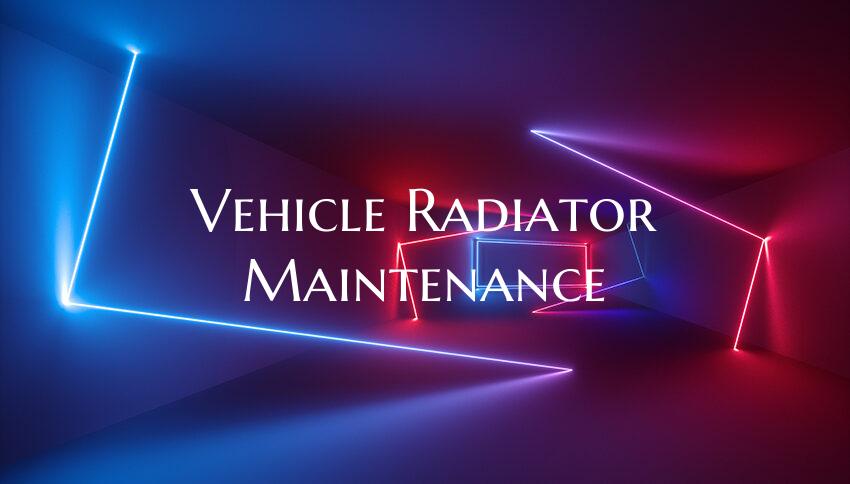Vehicle Radiator Maintenance
Introduction: The radiator is an essential component of your vehicle's cooling system, responsible for regulating the engine temperature and ensuring optimal performance. Regular maintenance of the radiator is crucial to prevent overheating, extend the lifespan of your engine, and avoid costly repairs. In this guide, we'll explore the importance of radiator maintenance and provide you with practical tips to keep your radiator in top condition.
Importance of Radiator Maintenance: The radiator works by dissipating heat from the engine coolant through a series of fins and tubes, allowing the engine to operate at the optimal temperature range. Over time, the radiator can become clogged with dirt, debris, and corrosion, reducing its efficiency and compromising the cooling system's overall performance. Neglecting radiator maintenance can lead to overheating, engine damage, and potential breakdowns on the road.
Tips for Radiator Maintenance: 1. Check Coolant Levels: Regularly inspect the coolant reservoir to ensure it is filled to the recommended level. Low coolant levels can lead to overheating and engine damage. If needed, top up the coolant with a mixture of water and coolant as per the manufacturer's specifications.
2. Inspect for Leaks: Check for any signs of leaks around the radiator, hoses, or connections. Leaking coolant can lead to a loss of pressure in the cooling system and result in overheating. If you notice any leaks, have them repaired promptly to prevent further damage.
3. Clean the Radiator: Periodically clean the exterior of the radiator to remove dirt, debris, and insects that can clog the fins and inhibit airflow. Use a gentle detergent, soft brush, and low-pressure water to clean the radiator thoroughly without damaging the delicate components.
4. Flush the Cooling System: Over time, the coolant can become contaminated with rust, scale, and debris, reducing its effectiveness. A periodic coolant flush helps to remove these impurities and replenish the system with fresh coolant, ensuring optimal cooling performance.
5. Check for Signs of Wear: Inspect the radiator and hoses for signs of wear, such as cracks, leaks, or corrosion. Replace any damaged components to maintain the integrity of the cooling system and prevent potential issues in the future.
Conclusion: Proper maintenance of your vehicle's radiator is essential to ensure the longevity and performance of your engine. By following these tips and incorporating radiator maintenance into your regular vehicle care routine, you can avoid costly repairs, prevent overheating, and enjoy a smooth and trouble-free driving experience. Stay proactive in caring for your radiator, and your engine will thank you with reliable performance for years to come.

